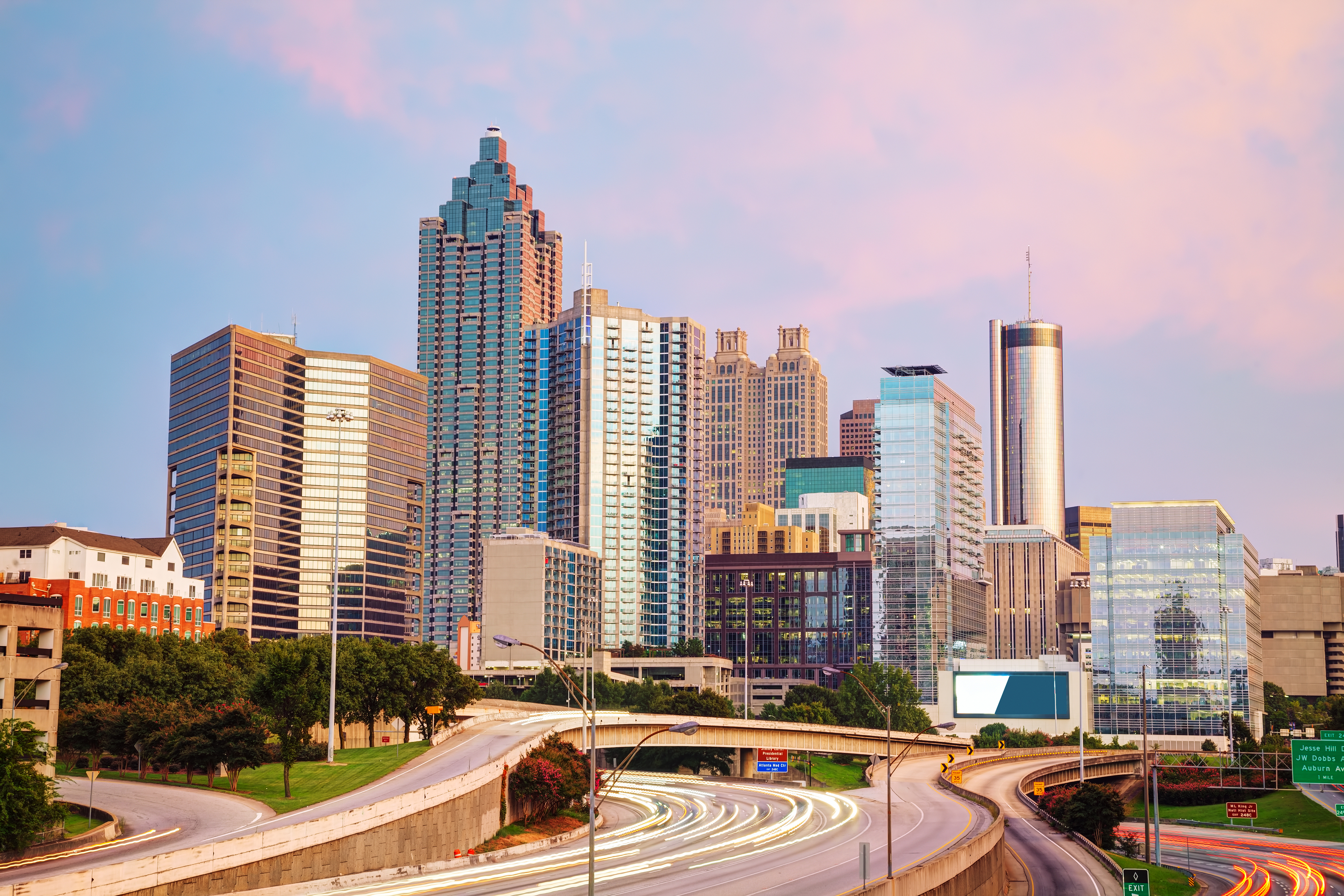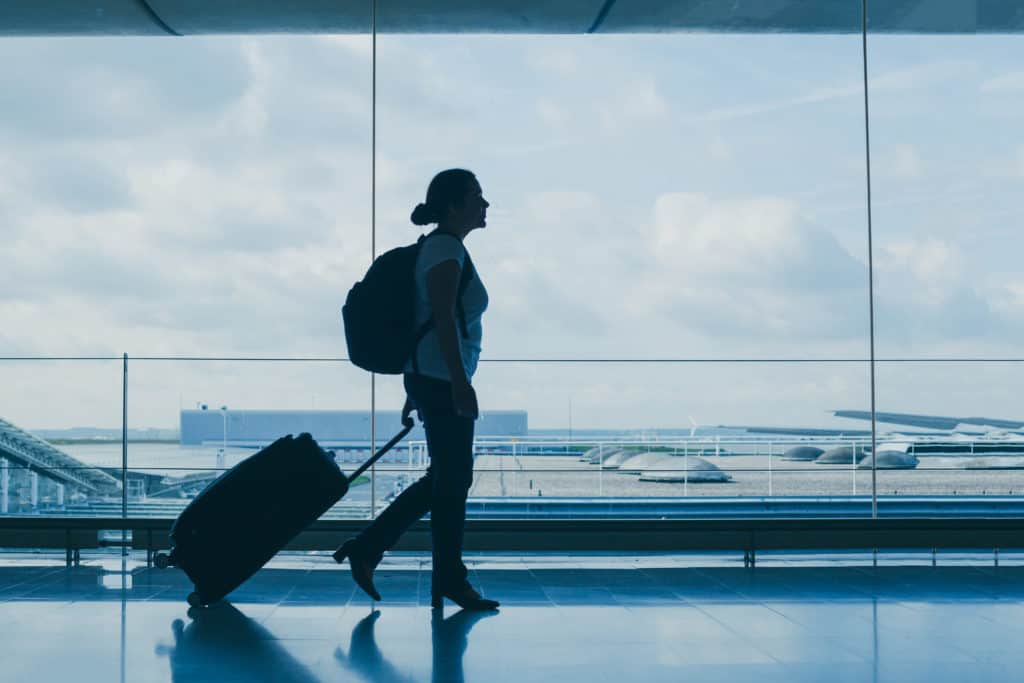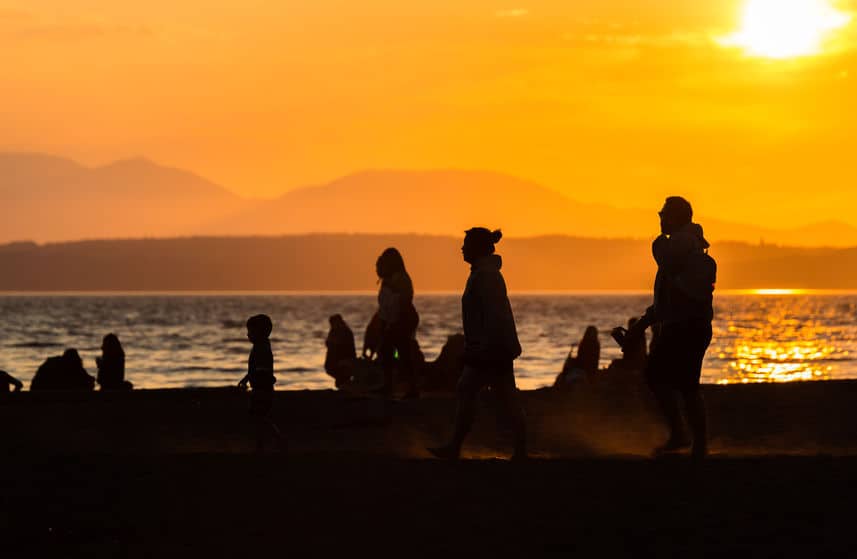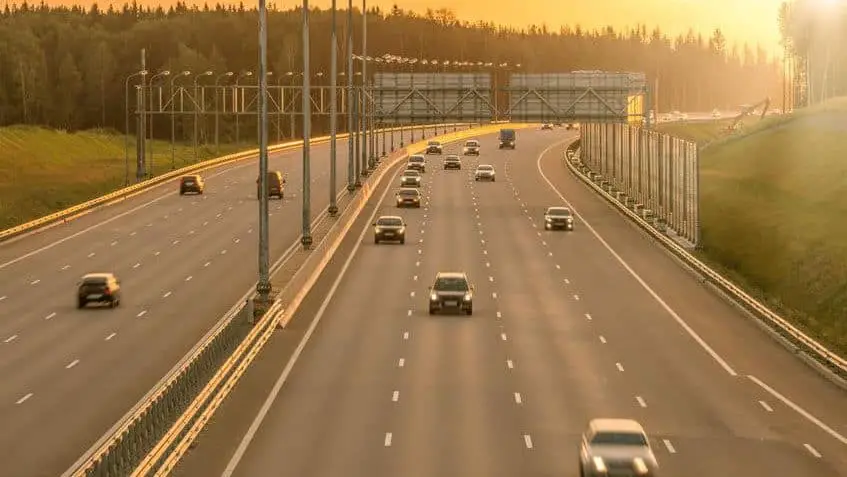
In the last few years, the population of Atlanta has grown significantly. But many make the move to Georgia’s capital without first considering the pros and cons of living in the city.
While some only consider positive aspects of an area it is also important to know the negative aspects. For the most accurate before making a decision, it is best to get information directly from the area locals.
Although living in the Peach state might seem like a great idea, locals have plenty of warnings for those considering the move. Keep reading to find out 17 reasons locals believe you should not move to Atlanta, Georgia.
1. Lack of Local Identity
When you think of most big cities, a sense of identity comes to mind too. For LA it’s Hollywood, Seattle it’s art, New York it’s commerce, and Boston it’s the Revolutionary War. Atlanta however is a fairly new city and therefore has yet to establish its unique identity.
In the past few years, the city has begun to establish itself as a hotspot for music creation, especially among rap artists. While Atlanta is on the way to establishing an identity of its own, it is in the beginning stages.
Because of the recent trend to move to Atlanta, it is actually fairly difficult to come across an area local. The majority of the city’s population moved there in the last few years. In the event you do find an Atlanta local, chances are they will respond to the question “Where are you from?” with “I was born at [insert local hospital here]!”
Another result of the city’s recent growth is the lack of well-developed institutions such as art museums, local festivals, and other places you might find in older cities such as New York or Chicago. Perhaps in a few years, Atlanta will have established its own local identity and institutions, but for now, it is just a place where lots of people live.
2. Neighborhood Cities
Like other cities, the surrounding neighborhoods of Atlanta develop with the city itself. As these individual neighborhoods grow, they start to see themselves as separate entities that are either better than or different than true Atlanta.
Buckhead is one of the most expensive neighborhoods in Atlanta and is home to many of the city’s resident celebrities. Learn more about celebrities who live in Atlanta in this article: 9 Celebrities Who Live in Atlanta. Some locals view Buckhead as a snobby neighborhood whose residents only want to show off their wealth.
Other neighborhoods of Atlanta, as they grow develop different political preferences from the main city. These neighborhoods then become their own towns leading to higher taxes for all. This also leads to complications in law enforcement jurisdiction. Overall, locals find these neighborhood cities rather annoying.
3. Crowded Airport

In your research of Atlanta, you have likely already found out that Atlanta is home to the Hartsfield-Jackson International airport. From this airport, you can find a flight to almost anywhere in the world (there may be a few connecting flights depending on where you are trying to go though). While this might seem like a bonus, being able to travel anywhere from just down the street can also be a negative.
Hartsfield-Jackson International Airport is not only the busiest airport in the United States, but is also the busiest in the world. One local claims that getting through security and to the terminal can take a minimum of an hour and a half. If you are hoping to sit and relax before your flight boards you will need to arrive even sooner than that.
Another negative of being close to an airport as busy as Hartfield-Jackson is the air traffic. If you live within a few miles of the airport you will likely be hearing airplanes flying overhead at all hours of the day. For any light sleepers hoping to move to Atlanta, bring earplugs.
4. Location
If you are from a coastal city, the best part is the short commute to the beach. For western states such as Idaho or Utah, the proximity to mountains is a major location plus. Unfortunately, Atlanta has neither of these features.
The only views offered in Atlanta is the city scape, which more outdoorsy people might not even consider a view at all.
To get to the beach from Atlanta, you will have to take a three to four-hour car drive. Keep in mind that is only one way. If you are only planning a day trip you need to carve out six to eight hours of your day for travel and whatever is leftover for the beach.
Luckily, only thirty minutes away you can visit Sweetwater Creek State Park or other local rivers and lakes. But if you are looking for these recreational areas to be only a moment away from your front door, Atlanta is not the city for you.
5. Bugs
The further southeast you get in the United States the more bugs there seems to be and the larger those bugs are too. Atlanta is a perfect example of this as it is home to many different bug species.
A few of the more annoying bugs that can be found in Atlanta include spiders, mosquitos, fire ants, and termites. While the spiders in Georgia do not pose much threat to humans, they do get rather large in size. If you have a fear of spiders, be prepared to encounter spiders much larger than those in the western United States.
Fire ants are the most annoying bug in Atlanta. While these insects are rarely found in the city they are extremely common in the suburbs, especially after a rainstorm. Watch where you step if you are out and about after a rainstorm. The bug most common inside city limits will be cockroaches.
Bugs are everywhere, no matter what town you live in they are something you just have to get used to being around. However, their presence will be more common in the Atlanta area and therefore make it harder to overcome.
6. Weather

One reason to move to Atlanta is to escape the cold. Winter only lasts about a month each year and is fairly mild. In fact, it rarely snows in Georgia.
While these both sound positive they can once again be negatives too. Because of how rare snow in Georgia is, many are inexperienced with driving in wintery conditions which can lead to more traffic accidents.
Because Atlanta experiences little winter weather, the rest of the year is essentially summer conditions. The average temperature in August is 85 degrees. Sounds like a dream? Remember the average includes the temperatures at night as well as the daytime.
Another factor to consider about the weather in Atlanta is the humidity. Combine the warm weather with high humidity and you can plan on being sweaty the entire summer season if not the majority of the year.
7. Political Diversity
If you are looking for an area that will perfectly align with your political standings, Atlanta will not likely be the right location.
According to Pew Forum, 45% of Atlanta residents identify as Democrats, 38% as Republicans, and 17% with no affiliation. Because the voting patterns are fairly split, Atlanta has become a very diverse city. While living in a politically diverse area can be beneficial, it is certainly not for everyone.
For those looking to stay in their comfort zone and not encounter people with differing ideologies from their own, you will want to find somewhere other than Atlanta.
8. Crime
Some locals claim that how unsafe the city feels is largely based on the perspective you take on it. If you hyperfocus on the crime warnings and reports then you will likely feel uneasy during your time in the city. These same locals say, if you take the necessary precautions and relax a bit then you will see the city is actually a fairly safe place.
For the 2021 report on the United States’ 100 most dangerous cities, Atlanta was not even mentioned.
Other locals and statistics argue certain crimes are more common in Atlanta than in other cities. The most common crime is car theft. Luckily, most stolen vehicles are returned to their owners within a few hours of being taken. Locals suggest keeping your car clean and organized, parking under a street lamp, and looking behind you before getting in your car.
While most other crime is low, a 2018 Forbes report listed Atlanta as the 8th worst city for homicide in the United States. Your chances of being involved in a violent crime are 1 in 131 while the chance of being involved in property crime is 1 in 22.
9. Air Quality
The most important factor of life is the air you breathe. In 2019 the American Lung Association listed Atlanta as one of the 25 worst cities in America for ozone quality.
The primary reasons for low air quality in Atlanta are soot particles from coal-powered plants or wood stoves and diesel emissions. Other factors include constant traffic and construction emissions.
While Atlanta can experience poor air quality, in recent years reports are showing improvements in alleviating pollution. Perhaps in 10 years, Atlanta will not be found on any of the “worst cities for” lists.
10. Health Care
The percentage of adults in Atlanta who are obese has surpassed the national average since 1998 according to America’s Health Rankings. In 2020, the State of Childhood Obesity found that 33% of Atlanta’s adult residents were obese.
With a higher percentage of obese people, it makes sense that Atlanta also has a higher percentage of citizens with diabetes as well.
With these serious health issues so prevalent, it is surprising to find out that Georgia ranks as the 4th worst state for accessibility to health care. This is likely because Georgia is ranked as one of the most expensive states for health care making it harder for the less wealthy to access proper health care.
11. Schools and Child Care

Georgia is ranked as the 26th best state for education. While this is close to being in the top half of the states, Georgia needs to focus on improving dropout rates and test scores.
In fact, in 2015 several teachers and administrators were convicted of changing students’ answers on their standardized tests. Even with this scandal going on, Atlanta schools’ test average is still around 44% less than the national average.
When children are not in school, they need to be in some form of child care. Unfortunately for many parents in Atlanta, child care is rising in cost. Currently, parents pay about $34,000 a year to give two children child care.
12. Cost of Living
Like much of the United States, the cost of living in Atlanta has continued to rise over the years.
The average cost of renting a one-bedroom apartment in Atlanta is $1,600 a year; meanwhile, the national average is only $1,376. These costs do not include the average cost of utilities either which can be several hundred dollars in additional expenses each month.
To lower your rent prices you will have to venture outside the city limits. However, his will increase your monthly transportation costs. While Atlanta is more affordable than say New York City it can compare to the cost of living somewhere such as Kansas City, Missouri.
13. Homelessness
With expensive health care, housing, and child care some residents find themselves having to choose which bills are most important to pay. Because of these factors, there is a large homeless community in Atlanta.
The entire state of Georgia has a population of 75,000 homeless people, with around 3,200 located in Atlanta city limits.
In 2017, Georgia was ranked as the 7th worst state for childhood homelessness. Homelessness is a serious problem that needs to be addressed in the Atlanta area.
14. Income
Now that we have covered the high costs of living in Atlanta and the effects these high bills can have, it is important to address the city’s income.
While the federal minimum wage is $7.25 an hour, this only applies to certain areas of work in Georgia. The state minimum wage is only $5.15 an hour. Income gets only lower when it comes to customer service jobs such as waitresses, waiters, hosts, etc.
Because of the federal tip credit, people in Georgia who may receive tips in addition to their normal wages can be paid as little as $2.13 an hour.
With wages as low as these and rent as high as discussed earlier, it is easy to see why Atlanta has such a high homeless population.
15. Pollen
If you have allergies you already pay constant attention to the pollen count where you live. One benefit of living in Atlanta is that there is no reason to check the pollen count most of the year. This is not because of a lack of pollen, but rather is due to an overabundance of it.
Depending on the year pollen can start to fill the air as early as January; however, most years the process begins between March and May.
“In the spring EVERYTHING gets covered in this yellow pollen. … It makes the lakes and water look murky and gross on top. Some years it’s worse than others but it happens every year.”
Atlanta Local
Even those with mild to no allergies can be heavily affected by the onset of pollen in the Atlanta area. If you experience severe allergies, Atlanta, or anywhere in Georgia for that matter, probably is not the place for you.
16. Traffic

With early 6 million residents in the greater Atlanta area, you are bound to get stuck in traffic regularly. In fact, Atlanta ranks in the top five worst U.S. cities for traffic.
With millions of drivers on the road every day it is not surprising that road maintenance and construction is a constant presence in the area.
While public transit does exist, locals feel as though it does not get you to where you actually need to be. If you are looking at living outside the city while working in Atlanta, check the public transit maps to see if they line up with the areas you are interested in first.
Check out the Metropolitan Atlanta Rapid Transit Authority map here!
If public transit does not meet your needs, locals suggest living within at least biking distance of work instead to avoid the city’s constant bustle of traffic.
If public transportation does not appeal to you the city does offer both Uber and Lyft or you can consider carpooling with coworkers and neighbors.
17. Hard to Navigate
The biggest complaint about Atlanta is how it is hard to navigate.
Atlanta was originally a railroad boomtown. While most railroad towns are laid out on a grid system, Atlanta is not. This is due to poor planning during the city’s beginning stages.
The locals frequently refer to the confusing street and highway set up as a bowl of spaghetti.
To make navigation even harder, nearly every street is some variation of peach or peachtree. You may find yourself on the corner of West Peachtree Street and Peachtree Street without any idea which way you need to go. Even with the help of a GPS, you may find yourself lost in Atlanta.
When getting directions from someone make sure they are specific to avoid getting lost.
Related Topics:
If you like the article above, here are some other similar articles you should check out!
Is Atlanta, Georgia a Liberal City?
